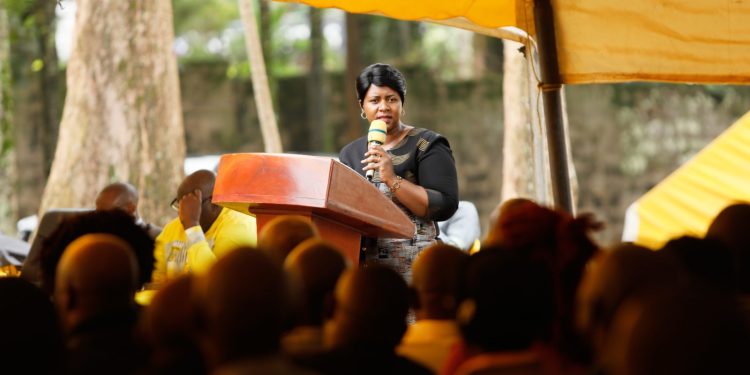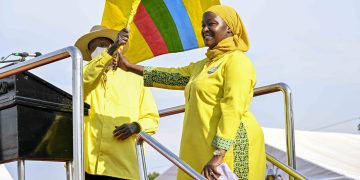The National Resistance Movement (NRM) has come out strongly to deny allegations that it is selling party flags to candidates ahead of its internal primaries for the 2026 general elections.
Amb. Barbara Nekesa Oundo, the party’s National Treasurer, rejected the claims as false and misleading. She spoke during an orientation session for NRM District Election Officers at the party’s Kyadondo headquarters, urging party leaders to counter the growing narrative.
“We are not selling party flags. I don’t know what some media houses want to achieve with such claims—this is pure misinformation,” Nekesa said.
The controversy emerged after the party released its nomination fee schedule for candidates vying for various positions under the NRM banner.
As per the guidelines issued by NRM Secretary General Rt. Hon. Richard Todwong, presidential aspirants are expected to pay UGX 20 million, parliamentary candidates UGX 3 million, Lord Mayor hopefuls UGX 1.5 million, and aspirants for LCV chairperson or district councillor positions UGX 1 million each.
Media reports suggesting that these fees equate to selling the party’s flag prompted a swift response from Nekesa, who labeled the reports as propaganda.
“This is a standard practice globally, where political leaders support their parties financially. The NRM has adopted this approach to encourage members to take ownership of the party’s activities,” she stated.
Nekesa emphasized that financial contributions from candidates are not new and have always been part of the party’s operations. She pointed out that the funds collected go directly into supporting candidates after the primaries.
“After the primaries, the NRM leadership steps in to assist flag bearers by paying their nomination fees and providing initial campaign funds. We give financial support to our candidates at different levels. So, we are not commercializing the party flag in any way,” she clarified.
She challenged critics to examine similar practices in other political parties, both in Africa and internationally. “Let us correct this wrong impression that we are selling NRM flags this is just propaganda meant to tarnish our image,” she added.
The nomination fees, though, have stirred public debate, with some critics arguing that they may disadvantage less financially capable aspirants.
Despite this, party officials insist that the practice ensures fairness, discourages unserious candidates, and strengthens the party’s financial foundation.
Political analysts agree that nomination fees are common globally, often used to cover administrative costs and streamline the candidacy process.
However, striking a balance between accessibility and sustainability remains a challenge for many political organizations, including the NRM.
“These are not our new rules. This has always been our practice. It is simply a way to encourage leaders to support the party’s political work. The money collected is used to help the same candidates later,” Nekesa concluded.
As the 2026 elections approach, the NRM is focused on internal mobilization and promoting unity. The leadership remains confident in its systems, even as public debate over nomination fees continues to gain traction.




















